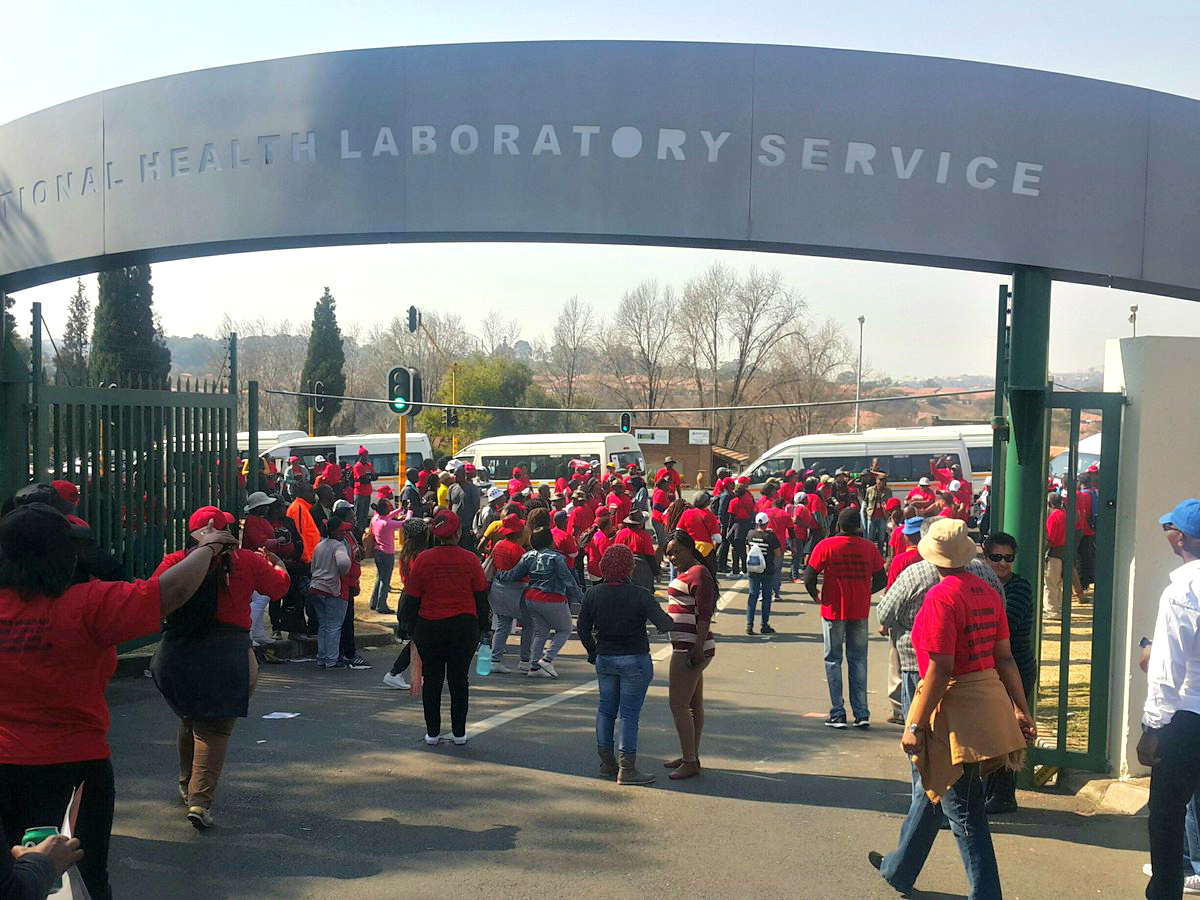Reproductive medicine specialist Dr Lawrence Gobetz says unnecessary procedures may compromise your chances of falling pregnant.
A strike by the National Health Laboratory Service (NHLS) is expected to stretch into its second week as the service pleads poverty. The NHLS operates about 300 laboratories nationwide that conduct tests — from cervical screenings to testing babies for HIV — for the public health sector.
How far the strike has affected these essential services remained unclear on Thursday, but Democratic Alliance Gauteng MEC and health spokesperson Jack Bloom said the majority of NHLS labs in Gauteng have been crippled or shuttered by the strike.

Workers walk out of work as part of the strike (Twitter: @rescology)
Meanwhile, another Twitter user posted pictures of empty offices, saying:
The National Education, Health and Allied Workers’ Union (Nehawu) and the Public Servants Association of South Africa (PSA) announced that workers would embark on strike action on Wednesday. The national industrial action comes after negotiations between unions and the NHLS stalled.
“They are offering us 7.3%, but with no added benefits like housing and medical aid. So we are still in dispute,” PSA assistant general manager Tahir Maepa said.
Although the NHLS and unions agreed on a wage increase, NHLS acting chief executive Shabir Madhi maintains that it cannot afford to meet demands for benefits unless provinces pay their debts.
The body needs R1.8-billion in reserves to remain operational, but it was R1.5-million short of this as of May, by which time it owed suppliers R864-million. In its annual report, the NHLS said that money owed to it by Gauteng and KwaZulu-Natal would “address the backlog and a sizeable portion of the reserve shortfall”.
“The NHLS staff were informed that the current financial position of the organisation is tenuous. Unless the provinces honour their outstanding debt, the NHLS faces an uncertain financial future,” Madhi warned.
By January, questions tabled in Parliament show that KwaZulu-Natal owed the NHLS R1.8-billion. Bloom says Gauteng owes the body R696-million. The service itself issued a statement saying that multiple provinces owed it R5-billion.
“It is alarming that the NHLS estimates that they will run out of money to pay salaries by November … largely because of the nonpayment by the Gauteng and KwaZulu-Natal provincial health departments,” said Bloom in a statement.
But Gauteng health department spokesperson Prince Hamnca argued that the exact amount owed was still in dispute and said the department continues to make monthly payments to the NHLS.
He explained: “When we say pay back … [It’s like how] you can owe a person R100 but because of other things, then you pay [back] R10.”
Bloom warned that although the Gauteng health department has outsourced crucial tests to private labs, this will only plunge the NHLS further into debt as it is expected to reimburse these companies.
Previous strikes at the laboratories have shut down diagnostic services, such as cervical cancer screening and some types of tests for HIV-positive patients, creating huge backlogs.
Bloom called Health Minister Aaron Motsoaledi “unforgivably delinquent in failing to sort out the management problems at the NHLS”.
The health department has given Gauteng and KwaZulu-Natal until Friday to pay their debts.
National health department spokesperson Popo Maja explained: “The [national health] department has contacted provincial health and treasury regarding amounts owing. Alternative measures to access the funds owed by provinces are being pursued with national treasury.”
On Thursday, workers picketed outside labs in Cape Town, East London and Johannesburg, supported by Cosatu members.
Unions had initially demanded a 13% wage increase.
The NHLS had countered by offering 3%, which unions rejected, saying 7.3% was the minimum offer they would accept. PSA national manager Reuben Maleka on Thursday said that the union expected to meet with the NHLS soon. Nehawu spokesperson Khaya Xaba said, however, that Nehawu had not been invited to any such meeting.